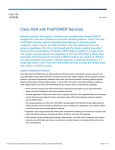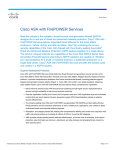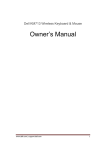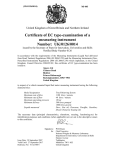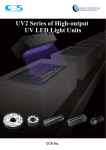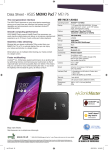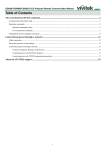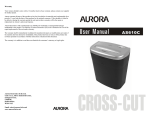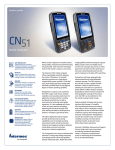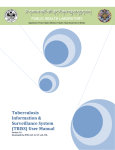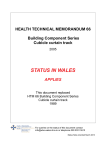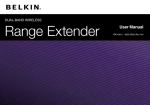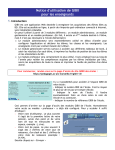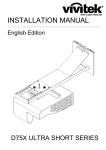Download copy of newsletter - Product Compliance Specialists Ltd
Transcript
PCS Quarterly Newsletter September 2015 Dear Customers, Please find enclosed our latest edition of PCS Newsletter with all activity that has taken place over the last three months. Inside this issue Argentina ……………………………………7 EMEA Region Bangladesh …………………………………3 Bhutan ………………………………….……4 Bolivia ………………………………………..7 Ukraine—August 2015 Brunei ………………………………………4 China …………………..……………………5 Following publication of Decree No. 295 dated May 14, 2015, IEEE 802.11ac Wi-Fi broadband access is now permitted in Ukraine. This technology is exclusively for products which use integrated omnidirectional antennae with a gain ratio of up to 9dB. Wireless devices previously certified in Ukraine with 802.11ac disabled must be updated before this technology can be used; a paperwork only process can be followed. Ethiopia ……..………………………………2 Kyrgyzstan ………….…………………..….1 Honduras …………………………………..7 India …………………………………………3 Indonesia ……………………………………5 Mexico ……………………………………….6 Niger……….………………………………….2 Pakistan …………………………..…………3 Paraguay ……………………………………6 Eurasian Customs Union, Kyrgyzstan—August 2015 Following confirmation of Kyrgyzstan joining the Eurasian Customs Union, it has been confirmed that the “Agreement on Eurasian Economic Union” has finally been expanded to include the country, coming into effect on 12th August 2015. Certification Bodies must be ready for issuing Customs Union Approvals in Kyrgyzstan by 12th February 2016. These Approvals are already accepted and sufficient in Kyrgyzstan for all products. It is expected that Customs Union Approval will supersede current National Level Approval in full, PCS will be able to confirm this after the transition period has finished. 1 Philippines ………………………………….4 Singapore …………………………………..4 South Korea ………………………………4 Tonga …………………….……………..……3 UAE ………………………………..………….2 Ukraine..……………..………………………1 Vietnam ……………………………………..4 And more! UAE— September 2015 PCS News PCS have recently established a new and much faster Type Approval solution in Rwanda. We are now able to successfully obtain Type Approval certificates in a reduced lead time of 2 weeks for non-testing applications and 4 weeks for products requiring a sample. We are also pleased to inform that we have made price and lead time reductions for Morocco, and can successfully obtain Type Approval certificates in a lead time of 2 weeks. Please speak to your PCS account manager for details! The UAE Telecommunications Regulatory Authority (TRA) has confirmed new mandatory cellular handset requirements in a recently published Technical Specification (TS040). These requirements mandate that all cellular handsets being imported into the country from 1st January 2016 onwards must be configured to enable the device to receive public warning notifications in cases of emergency or natural disaster. This applies to mobile phones only. Ethiopia—Q03 2015 There has been a recent amendment in the Type Approval regulations regarding the requirement of samples in Ethiopia. Moving forward, The Ministry of Communications and Information Technology (MCIT) will require two product samples for all notebooks, tablets and mobile phones. For all other product types, samples are not mandatory however it is at the Authority’s discretion to request them should they be considered necessary for review. No significant impact on lead time is expected however PCS will closely monitor this for any potential changes. Niger—Q03 2015 It has been confirmed by the Nigerien Authority, Autorité de Régulation des Télécommunications, that the National Type Approval procedure is still currently on hold as talks regarding the organisation for Type Approval activities remain ongoing. PCS are seeking written confirmation on import rules whilst this suspension is place, and will keep customers updated once formal feedback is received. 2 APAC Region India BIS— August 2015 A new extension notification was been issued on 7th August 2015 whereby certain product categories have been granted a further extension to obtain BIS Approval (registration). Manufacturers now have until 1st December 2015 to register the below product categories with BIS: 1) 2) 3) 4) 5) Power Adaptors for IT Equipment Power Adaptors for Audio, Video, & similar electronic apparatus UPS/Invertors of rating ≤5KVA DC or AC supplied Electronic Controlgear for LED modules Sealed secondary cells/batteries containing Alkaline or other non - acid electrolytes for use in portable applications 6) Fixed general purposes LED Luminaires Further extensions were then offered by BIS, whereby manufacturers had until 13th September 2015 to register the below product categories with BIS: 1) Self Ballasted LED Lamps for General Lighting Services 2) Mobile phones Tonga — September 2015 Type Approval regulations are now being enforced in Tonga whereby all RF equipment must be Approved by the Ministry of Information & Communication (MIC) before being imported and commercialized in the country. Foreign manufacturers can hold the Approval, and the process is paperwork only leveraging test reports to CE/FCC or other international standards. The MIC reserve the right to request samples on a case by case basis. Approval Certificates are valid for 5 years. PCS are clarifying with MIC whether there is a transition period for products already being commercialised in the country without Type Approval, further information will follow as soon as this is confirmed. 3 PCS News India BIS PCS Regulatory Engineer Ray Oso has visited Indian test laboratories and the BIS reviewing officers several times in recent months as part of PCS's efforts to successfully drive projects through the incredibly busy and expanded BIS approval regime. Should you have any queries about India BIS approvals or wish to learn more about Ray's experiences, please speak to your account manager. Bangladsh We have recently received written confirmation from the Bangladesh Telecommunication Regulatory Commission (BTRC), that the type approval is currently still not required as the relevant regulation is still in process. For now, only an importer license is required for importing RF products into Bangladesh. Pakistan A new manager has been appointed in the Type Approval department, with whom PCS have been able to establish direct contact. Bhutan — August 2015 PCS News Singapore The Infocomm Development Authority of Singapore (IDA) has approved the request of the mobile network operators (MNOs) – M1, Singtel Mobile and StarHub Mobile – to close their 2G networks with effect from 1 April 2017. IDA has also stopped accepting the registration of 2G-only mobile communication equipment from 15 September 2015. Brunei The Authority for Info-communications Technology Industry (AITI) have advised that there is a potential for current Type Approval regulations to change due to high demands for this service. Considerations are being made to only to issue approvals for devices with confirmed orders from the Brunei market (importation documents will be needed as proof). PCS is investigating with Authority and will advise further update. Bhutan InfoComm and Media Authority (BICMA), has recently published their draft type approval regulations. Once regulations are enforced, Type Approval for all ICT devices imported into Bhutan will be mandatory. The draft regulations proposes a paperwork only process leveraging test reports to CE/FCC or other International standards. Additionally, the Bhutanese importer must apply for a sales permit before they can import or sell the Approved ICT devices. For now, CE/FCC approval is sufficient and no national level type approval is required in Bhutan. PCS is investigating with the Authority on the estimated date when the draft regulations will be put into force and will keep customers updated. Vietnam—Q03 2015 On 15 June 2015, Vietnam's Ministry of Information and Communications (MIC) published new standard QCVN88:2015/BTTTT which will come into effect on 1 January 2016. The standard corresponds to the international standard EN 302 567 v1.2.1 (2012-1) and allows devices to operate on 57 GHz - 66 GHz with max. power of 40dBm ERIP. South Korea—September 2015 Following amendments to the Electrical Appliances Safety Control Regulation, the requirement to test and approve all Lithium-ion type batteries, regardless of Energy Density value (Wh/L) has been announced and is due to take effect from 1st April 2016. Prior to this regulation taking effect, batteries with an Energy Density greater than 400Wh/L only would require testing and approval. Philippines— August 2015 4 Medical Data Systems (MEDS) are now included in the National Telecommunications Commission (NTC) SRD Regulations for the 401 - 402 MHz, 405 - 406 MHz frequency bands. This amendment came into effect on 27th August 2015. China—August 2015 The Ministry of Industry and Information Technology of P.R.C announced on 26th June 2015 that electronic labelling is permitted to show the SRRC CMIIT ID on the device provided that it meets the following requirements : 1) The display cannot be removed and/or replaced. 2) Instructions are provided to the user on how to locate the CMIIT ID. 3) The user can locate the CMIIT ID easily and without the need for special operation required such as entering a password. 4) The user can locate the CMIIT ID without the need for special accessories or additional conditions such as inserting a SIM card. 5) The device meets all other related laws and regulations of China. In addition to the above, the CMIIT ID should also be affixed to the outer packaging and user manual of the device and manufacturers should ensure that the CMIIT ID cannot be changed or deleted by any third party. China Quality Certification Center (CQC) also announced on the 21st Aug 2015 that the Lithium-ion cells and batteries contained in the portable electronic products which fall under GB 4943.1-2011 or GB8898-2011 must comply with the national safety standard GB 31241-2014 with immediate effect. Additional safety requirement may apply to the Lithium-ion cells and batteries contained in some special equipment (eg: vehicle, ship, aircraft etc.) or used in industries such as medical, mining and subsea work etc. Indonesia—Q03 2015 SDPPI have recently implemented a new technical requirement which requires the max. power (at antenna connector) for both 2.4G and 5GHz to be limited to 20dBm (100mW). The maximum EIRP value permitted for each band is as follows: 2.4GHz: 36dBm (4W) for outdoor use, 27dBm (500mW) for indoor use 5GHz: 36dBm (4W) Previously the limit was 33dBm for WLAN 5GHz devices and 36dBm ERIP for Fixed Wireless / Broadband Access. 5 PCS News Typical product categories affected by the China CCC requirement for LithiumIon cells are: (but not limited to) Portable Products for Office Use, e.g. Notebooks and PDAs Mobile Communication Products, e.g. Cell Phones, Walkie Talkies, Bluetooth headsets. Portable Audio/video Products, e.g. Portable DVD, MP3/MP4 Player, Camera, DV, Voice Recorder Others, e.g. Electronic Navigator, Digital Photo Frame, Games, E-book, etc. Americas and LATAM Region Mexico—July 2015 PCS News PCS are now pleased to be able to offer a comprehensive Type Approvals solution for 400MHz Narrowband radio, with coverage of major and peripheral markets in EMEA, APAC and LATAM regions. We have completed several large projects for 400MHz Narrowband and are well placed to help customers with their certification needs. Please contact your PCS account manager for further details. The NOM-121-SCT1-2009 regulation which applies to devices operating in the 2400-2483.5MHz, 57255850MHz and 902-928MHz frequency bands will expire on October 19th 2015. Once the NOM-121-SCT1-2009 regulation expires, it is estimated that there will be a 2 month delay until a new NOM regulation is issued. From October 19th 2015, and until the new NOM regulation is issued, it will not be possible to file any new Type Approval applications for products working in the 24002483.5MHz, 5725-5850MHz and 902-928MHz bands. Manufacturers are therefore advised to accelerate all Type Approval requests so that submission to the RF Authority, IFT (Instituto Federal de Telecomunicaciones) takes place before the existing NOM-121-SCT1-2009 regulation expires on October 19th 2015. PCS understands that there will be no impact to any devices Approved in accordance with NOM-121-SCT1-2009 before October 19th 2015. All such Approvals will remain valid and import can continue. Paraguay—September 2015 The Paraguayan Authority, Comisión Nacional de Telecomunicaciones (CONATEL), has recently advised that the 915-928MHz band is no longer permitted for spread spectrum devices due to incidences of interference. It is understood that products which have already obtained Type Approval in Paraguay, and which operate on the 915-928MHz band, can continue to operate until the existing Type Approval certificate reaches its expiry date. This has not yet been confirmed by CONATEL, however PCS are working to confirm this information. 6 PCS are investigating the possibility to approve devices in the 865-868MHz band instead and will keep customers updated. Argentina—Q03 2015 Following the introduction of the new regulatory institution, Autoridad Federal de las Tecnologías de la Información y las Comunicaciones(AFTIC), it has been advised that internal restructuring is still ongoing and staffing levels are currently low. While Approval Certificates are being issued, there are still significant delays affecting many applications currently under review. Renewal applications remain unaffected, however. PCS News Bolivia—Q03 2015 Following our previous newsletter, The Bolivian Authority (ATT) are still experiencing delays as a result of their heavy backlog. The current estimated lead-time for the processing of Type Approval applications remains at approximately 14-15 weeks. PCS will continue to monitor the situation and provide further updates. Honduras—July 2015 Honduran Authority, Comision Nacional de Telecomunicaciones (CONATEL), released regulation NR007/15 concerning their frequency allocation for spread spectrum and digital modulation devices, as well as infrastructure and national information devices operating in the 2.4GHz, 902928MHz and 5GHz bands. The most significant development here is the new permission for spread spectrum devices operating in the 902-928MHz band: a. b. c. 7 Direct Sequence Spread Spectrum systems - 915-928MHz @1W Frequency Hopping Spread Spectrum systems with 25 to 50 hopping channels - 915 928MHz @ 250mW Frequency Hopping Spread Spectrum systems with more than 50 hopping channels - 915-928MHz @ 1W Due to increased efficiencies, PCS are pleased to announce further Improvements in the following countries: Reduction in price and sample requirements for Mexico Reduction in price for Peru Reduction in lead time and pricing for Chile Please contact your PCS account manager for a quotation! PCS News PCS will often take the opportunity to visit local contacts to help with testing Our team always endeavour to go the extra mile and identify ways to improve our service to our customers. We’re pleased to confirm that our newest Arabic and Russian speaking project coordinators have completed their training period and are now actively working on continued developments to our solution in the Middle East and CIS. issues, facilitate submission of Type Approval applications and understand new regulations which are being implemented. In the upcoming weeks, our Country Manager and Regulatory Engineer, Albina Sultangulova, will be visiting Indonesia to meet with local contacts. Thank you for taking the time to read these articles. Please feel free to contact your account manager at PCS if you have any questions. Contact Product Compliance Specialists The Malthouse, Malthouse Square Princes Risborough, Bucks HP27 9AZ United Kingdom Tel: +44 1844 273 277 Fax: +44 1844 273 278 Email: [email protected] Web: www.productcompliancespecialists.com 8 Product Compliance Specialists 1219, CIMIC Tower 1090 Century Avenue, Pudong New District, Shanghai, 200120, China Tel: +86 2150 721 769 Mob: +86 1376 105 6310 Email: [email protected] Web: www.productcompliancespecialists.cn








